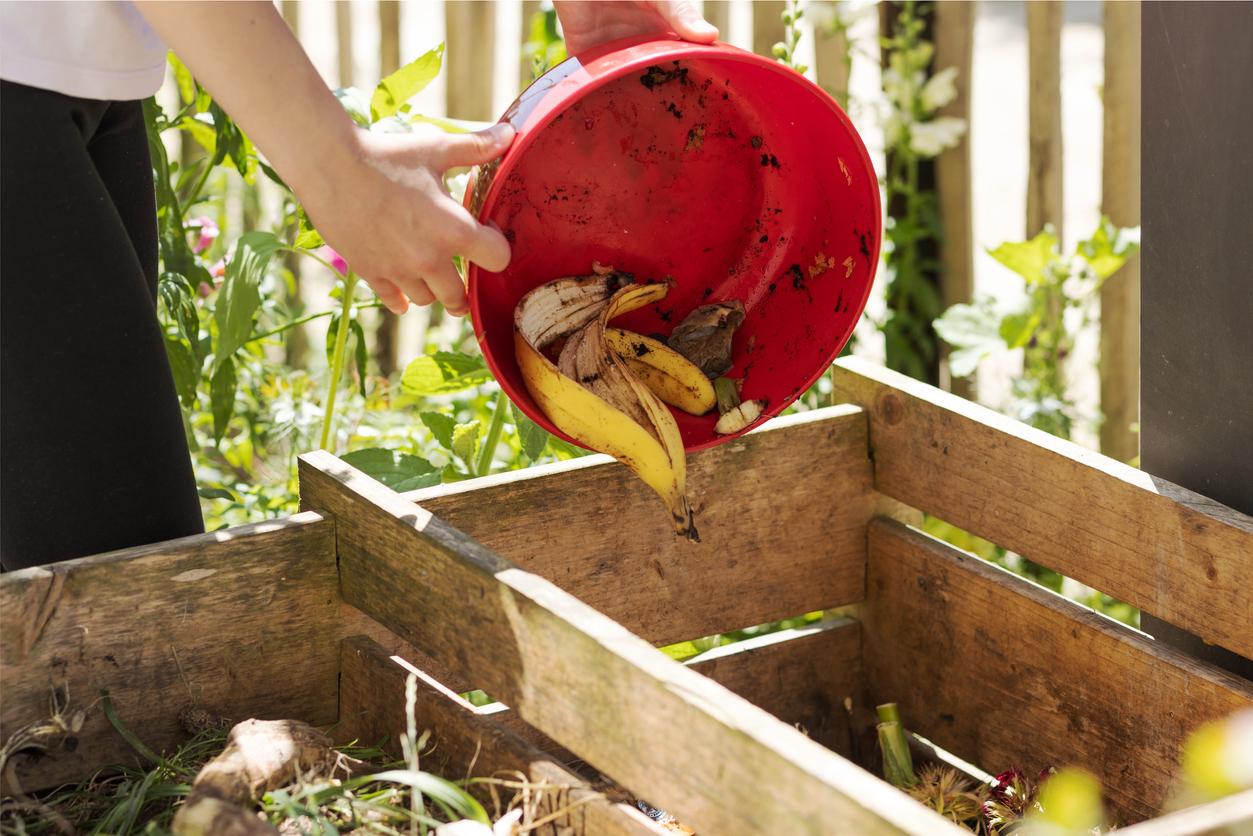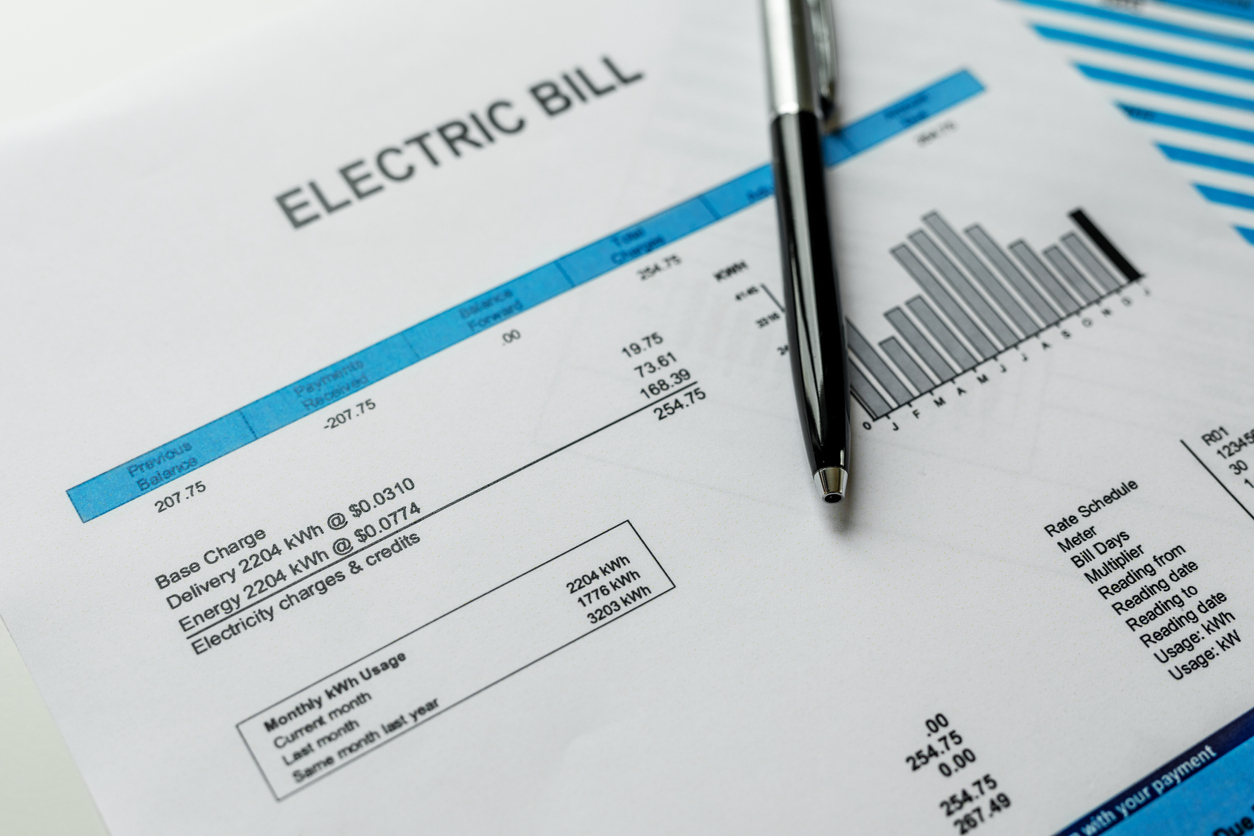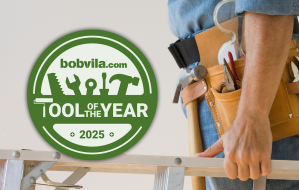

We may earn revenue from the products available on this page and participate in affiliate programs. Learn More ›
Many homeowners share a common New Year’s resolution: Save more money. The past few years have shown how important it is to put a little extra aside. In the 12 months preceding September 2023 alone, consumer prices rose 3.7 percent for all items, including food. That followed a peak of 9.1 percent inflation in June 2022.
To tame inflation, the Fed hiked interest rates 11 times between March 2022 and July 2023, for a total that spanned from a low of about 0.50 percent in 2022 to a high of 5.50 percent in summer 2023. Those having trouble making ends meet likely saw a jump in the cost of borrowing as well.
“Salaries are not keeping up with inflation and expenses,” says Shelia Terrell, president and CEO of Rise Memphis in Tennessee. The mission of Rise Memphis is to empower people to become self-sufficient. The nonprofit helps low-income working people in the community to budget, save money, and improve their overall financial well-being. She and other experts on budgeting have tips on tracking spending and avoiding paying more than necessary, or paying for items you don’t need.
1. Single Items (vs. Bulk Buying)

Those who have the space (and a large outlay of funds at once) benefit from buying in bulk, a major reason why warehouse club memberships are as popular as they are. In 2022, the number of warehouse clubs and supercenters increased 22 percent over 2021. Assuming that purchasing at one is free or with a low-cost membership, buying some items in bulk at the store can save families money. If you save only 10 cents per purchase, that adds up to saving more than $36 a year on that single item. Aside from needing space to store items until they’re used, the only other drawback to bulk purchases is the need to spend more upfront; still, it’s money in your pocket in the long run.
- The best bulk deals are usually on nonperishable goods, like toilet paper.
- Buy perishables only if you know they will get used before they expire.
- Determine the per unit price (per pack, per ounce, etc.) to compare bulk items with the same product in a smaller quantity.
2. Cleaning Products

Do you own baking soda, white vinegar, lemon juice, olive oil, and Castile soap? Then you have the ingredients for countless homemade cleaning products. Buy bulk sizes of the ingredients to mix your batches. In general, DIY cleaners tend to cost about one-fifth of commercial ones. Check the per-unit price for DIY ingredients that go into each ounce of your homemade cleaner vs. the cost per ounce of a commercial product.
Making your own cleaner also lowers the chance that you’re exposed to potentially harmful chemicals, since you control what goes inside your DIY batch of hardwood floor polish or toilet cleaner.
RELATED: 13 Surprising Pantry Items That Naturally Clean and Freshen Your Home
3. Disposable Items

After spilling coffee or splashing soup, most homeowners reach for a roll of paper towels. Paper good costs have been increasing at a rate of more than 3.25 percent a year since 1997. And with shrinkflation, expect to find up to 8 percent fewer sheets per paper towel roll. Save money (and help protect the environment) by reaching for reusable towels, rags, or sponges instead.
Other disposables to replace include:
- Reusable grocery bags; check with your local store to ask about incentives for bringing your own in.
- Start a collection of reusable food storage containers, which are washable and refillable to minimize kitchen waste.
- Invest in a set of more sustainable mixed-size silicone bags, and you’ll save on grocery bills in the long run.
- Dryer balls instead of sheets, washable cloth napkins, reusable coffee cups.
RELATED: 21 Money-Saving Tricks That Every Homeowner Needs to Know
4. Items or Services You Can Barter

It can be difficult to ask for help, but easier to ask for a trade. Bartering is a time-tested strategy for securing both goods and services. “Most of our clients have practiced cost-saving measures by performing DIY and bartering for years due to their limited incomes and their culture,” says Terrell. “It is absolutely an option for families,” she adds. Start with neighbors, friends, and family members to swap services like pet-sitting, gardening, or DIY skills.
This also might include splitting those bulk purchases mentioned above or sharing simple items from the kitchen and tool shed. According to Terrell, social media has made this easier within communities. For example, some bartering groups meet on Facebook or NextDoor.
RELATED: 10 Easy Ways to Build Your Own TV Stand
5. Bottled Water and Supplies

According to Business Insider, bottled water can cost 2,000 times more than tap water—and it’s terrible for the environment to boot. Stock up on savings by relying on free tap water and reusable bottles, which come in all sorts of colors, sizes, and styles, but be sure to choose only BPA-free designs.
Refills also can save money over newly packaged items like hand soap, dish soap, hand lotions, or shampoo. Keep the small container handy and refill it as needed with bulk-purchased products, which should offer better pricing and less spent on dispenser packaging.
RELATED: 8 Things New Homeowners Waste Money On
6. Streaming and Cable Services

Many households have cut the cable, which averaged $217.42 a month in 2022. If your weekends revolve around Netflix or Hulu, you probably can cut that expense. However, a survey of more than 2,000 adults in February 2023 revealed that more than half of U.S. households now stream four or more services, which also adds up, so keep track of them before they end up costing more than the canceled cable subscription.
Terrell suggests families “reduce streaming to one platform.” You also can opt for commercials with lower-tiered pricing. Finally, adding a digital antenna can help you nab local channel signals and catch weekend football games.
7. Yard Work

A little grunt work never hurt anybody. If you’re looking to cut down on costs, consider taking on your own lawn and landscaping work. Although the cost of hiring landscaping services varies based on property size, people pay an average of $8,150 a year.
You’ll need to shell out a one-time payment for landscaping tools you lack, like hedge trimmers and a weed whacker, but savings will eventually add up because you won’t be paying for ongoing services. Plus, gardening chores provide good exercise and fresh air outdoors.
8. Soil and Compost

Compost gives an excellent boost to houseplants and vegetables grown outside. A bag of compost can run from $3 to $10, and for larger beds, bulk compost costs $20 to $50 per yard of material. Making your own can be virtually free if you build a compost bin out of scrap wood or old pallets, or you can invest in a compost turner. Once it’s set up, you only need to learn the basics of composting. According to Lynn Toomey, personal finance and retirement expert, composting “is a great way to reduce landfill waste and create free, natural fertilizer.”
Save on soil too:
- In 2023, topsoil averaged between $10 and $50 per cubic yard. Check with local tree-trimming companies and city government to see if they offer free or reduced-cost compost, mulch, or topsoil.
- If that doesn’t pan out, turn to sharing sites and social media.
RELATED: 11 Surprising Places to Get Free Gardening Supplies and Save Money
9. Brand-Name Products

From medications to toilet paper, brand-name products cost significantly more than generic ones. Still, a report on consumer insights from Purdue University in 2023 found that shoppers choose brands they know over generic alternatives for beverages and snack foods in particular, even when brands cost 15 percent more. Those who made less than $50,000 a year were more likely to opt for generic products when comparing prices for goods, especially when brand-name products cost 30 percent more than generic foods and goods. Taste is the major factor cited for sticking with brands, but when it comes to paper products, baby foods, or dairy items, the differences are less apparent.
- Don’t hesitate to pick up cheaper versions of nonperishable foods, paper products, and cleaning products.
- Generic drugs typically cost 80 to 85 percent less than brand names.
- Compare the active ingredients on labels of over-the-counter generic or store brands vs. top brand names to select generic options of items like pain relievers.
RELATED: 16 Things You Should Never Buy at the Dollar Store
9. Books and Magazines

Buying old-fashioned books on paper vs. digital versions has remained the preference of some consumers, though book sales fell in the first quarter of 2023 by 2.7 percent. Keep up your reading habit and save money by checking out books from your local library, or shopping thrift stores for gently used books. Most libraries offer ebooks and digital magazines to those with library cards, too, through app services such as Libby.
RELATED: 12 Bookshelf Plans You Can Build in a Weekend
10. Anything You Can Get at a Little Free Library

Another option for books is to search for open exchanges from little free libraries in coffee shops or on a nearby street, where you can trade gently used books. But many communities don’t stop there. Little Free seed libraries and seed exchange events have “cropped up” around the country to help gardeners and families who want to grow their own food. Clever neighbors or business owners have also set up roofed huts with other free items, such as:
- Street-side roofed food pantries
- Hot Wheels cars
- Day-old baked goods
- Extra yarn for knitting
11. Unused Gym Memberships

Do you always promise yourself that you’re going to work out, but inevitably plant yourself on the sofa instead? Joining a gym is a good motivator, but the average membership costs between $40 and $70 a month. If you find you are not making the most of the membership, cancel it. Ways to exercise for less include:
- Walking or running outside
- Lifting weights in your home gym
- Sweating it out with free streaming workouts and fitness tutorials
- Working out at community centers, many of which offer free or highly reduced prices to access gyms and basic fitness centers, or sponsor leagues and pick-up games.
12. Hot Water

All those showers, dishes, and laundry loads add up. Save money and enjoy a more eco-friendly approach to cleaning by using cold water when it makes sense. A study by the American Cleaning Institute (ACI) on the clothes-washing activity of college students found that more than half had never heard that most clothes come clean in cold water.
According to the ACI, washing four out of five laundry loads in cold water could cut 864 pounds of CO2 emissions per year, the equivalent of planting 37 acres of forest. After educating students on the benefits of cold water to the condition of clothing materials, the Earth, and their wallets, 63 percent said they were more likely to consider switching to cold water.
RELATED: Can Cold Water Effectively Clean Your Laundry?
13. Shipping Costs

Online shopping has firmly taken root as the preferred method for buying everything from groceries to appliances. About 20 retailers announced they would close stores in 2023, for a total 2,847 retailer locations, adding to the likelihood that consumers will continue to turn to online retailers.
Avoid shipping costs when possible, especially before this perk goes away. As other e-commerce sites try to keep up with Amazon’s lead on free shipping, they are finding the cost of that feature is rising. Shipping rates for major companies like FedEx and United Parcel Service are reaching record-high levels, and companies are looking at ways to cut shipping costs. Here’s how you can cut yours:
- If product costs are the same, make your purchases from sites that offer free shipping.
- Many stores are raising their minimum purchase amount to qualify for the service; if the item is nonperishable, meet the minimum.
- If you can’t avoid a shipping fee, shop early and choose the slowest and cheapest delivery method.
- Some retailers offer free shipping to a local store. If driving a few miles to save $5 or $10 is a good tradeoff to you, go for it!
14. Auto-Renewals

Stefan Campbell, owner of The Small Business Blog, advises consumers to keep auto-debit arrangements at bay. Along with streaming channels, auto-debit features for various subscriptions or entertainment sites can add up. And if your checking account lacks the funds, you’ll pay overdraft fees if an auto-renewal goes through at an inconvenient time. Campbell recommends “stopping the non-used subscriptions and putting off the auto-debit” on your cards to lower expenses.
15. Transportation Costs

Everything you’ve ever heard about walking or biking to nearby destinations to save gas mileage is true. Although national averages for gas peaked at $3.90 a gallon in 2023, and eventually came down nearly 50 cents a gallon near the end of the year, prices remain high.
Of course, walking or biking to your destination isn’t always possible. Public transportation can be cost-effective, particularly in the following circumstances:
- If you do take the train or subway, save by purchasing weekly, monthly, or yearly passes.
- Ask for a hybrid work arrangement, where you work at home a few days and go into the office occasionally; about 88 percent of hybrid workers report saving money on fuel.
- Share transportation costs with work colleagues by carpooling to and from the office.
16. Credit Card and Loan Interest

In February 2023, the average credit card annual percentage rate (APR) was a whopping 20.92 percent. According to Experian, paying off a credit card also strengthens your credit score, and usually is the first debt consumers should tackle rather than loans. An exception, of course, is a payday loan, which can add up to the equivalent of 400 percent APR in interest and fees. Once credit cards are paid off, use cash for purchases, says Terrell. “There is a psychological effect when using cash instead of swiping a card,” she says.
17. Outrageous Utility Bills

Old appliances, light bulbs, and drafty windows might add small amounts to monthly energy bills, but these expenses add up. As you are able to do so, replace these outdated home features, says Toomey. “They may cost more upfront, but save you money on your energy bills in the long run,” she says. Toomey had an energy audit from her state’s energy-savings program to help find out where she could reap the most benefits. Find out if your local utility company or city offers free audits.
- Prioritize which appliances or other items to replace, or seek energy information when replacing broken appliances.
- Take advantage of any local or federal rebates or tax credits on things like energy-efficient appliances, windows, and heaters.
18. Extended Warranties

When you’re buying a new appliance or gadget, think twice before springing for the extended warranty. They’re often overpriced, usually setting you back between 10 and 20 percent of the product’s cost, and they won’t cover all damages, such as those caused by accidents or user error. Instead, set the cost of the warranty aside, and use it for necessary repairs or replacements.
19. DIY-able Repairs

Saying no to extended warranties is easier if you know how to make basic repairs yourself. “Before tossing out something that is broken, see if you can mend or repair it,” says Toomey. Homeowners with basic skills can complete toilet and basic plumbing repairs, or fix scratches and dents in furniture. Although some tasks require specific tools or parts, you can complete many repairs with inexpensive products you might already have in your home.
RELATED: 50 Things Every Homeowner Should Know How to Do
20. Impulse Purchases

The average person spends at least $150 a month on impulse purchases. Seven of 10 who resisted the temptation and held off on the purchase report saving money as a result. When RISE Memphis helps with budgeting, they suggest beginning the process by tracking how you spend your income. Terrell suggests involving “everyone in the household in an “in-person budget committee meeting at the beginning of each month.” As a group, a family can review goals and recommit to the budget, even monitoring each other’s spending on impulse items. She also suggests having “no-spend weekends” as a way to rein in overspending.
